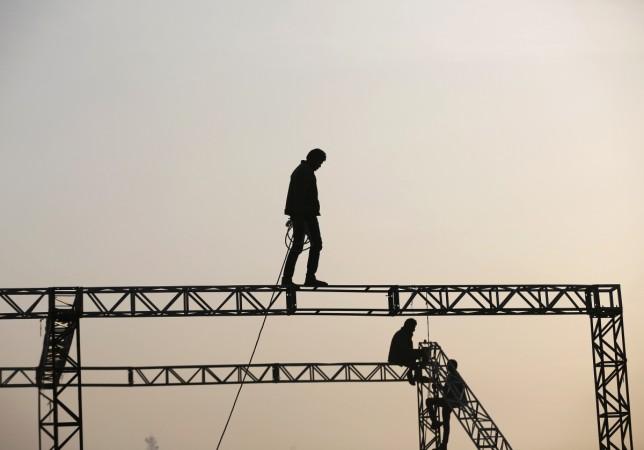Capital Economics (CE), an independent macro-economic research company, released its India Watch research report on Friday, cataloguing its interpretation and expectations on the upcoming Budget 2015. It sees Indian economy expanding by 5.5% in 2015, owing to the fall in crude oil prices and interest rates.
Reserve Bank of India
When the RBI cut rates by 25 basis points earlier this month, it had notified that further cuts are contingent on the government being able to provide sustained high quality fiscal consolidation, and to improve the investment climate.
Capital Economics said the RBI is expecting the government to cut its current expenditure – subsidies and public sector wages – while focusing on investment projects, which would boost the economy over the medium term.

Capital Economics said that it expects the RBI to cut another 25 basis points in February, bringing the repo rates to 7.5% and reverse repo to 6.5%. However, any further cut is directly contingent on the Finance Minister Arun Jaitley's budget.
Fiscal Deficit of 3.8%
On the fiscal deficit front, the research firm believes India would struggle to meet the 3.8% set for 2015/16, given the current expenditure unlikely to be brought down. It suggests that the finance ministry should revise its benchmarks.
Economic Reforms
All of India and the investor community around the world is expecting to hear the government spell out its economic reforms, which has often been compared to the Narasimha Rao government-initiated economic reforms of 1990s.
Even as RBI expects the government to cut current expenditure, investor community is hoping for significant reforms to be introduced by the Finance Minister Arun Jaitley. This necessitates a move from current expenditure to public investment, which is not mutually exclusive and thus makes it harder to achieve.
While public investment has languished over the last few years, the Modi government is expected to reverse the trend and increase spending in key areas of education, health and infrastructure, improving the long term growth prospects, read the CE report.
Disinvestment Programme
The government asset disinvestment programme is facing severe headwind, with stake sales running aground, requiring state-run financial institutions to step in at the last moment to rescue the government programme. The Coal India share sale made clear the poor investor interest. The finance ministry needs to gain credibility and must revise its disinvestment targets, said Capital Economics.
Inflation
Inflation is likely to remain low compared to the past years, with the fall in commodity prices contributing the most. Spare capacity in the economy is expected to see core price pressure remain low.
The inflation basket would witness a drop in food and fuel prices by about 1-2% each.
Industrial Production
Capital Economics said the initiative for generating a robust recovery in the industrial production sector lies with the government. It is imperative that stalled projects receive a new impetus, with more business-friendly reforms, coinciding with the efforts to improve the business climate. Unless the progress becomes evident, India's industrial sector will continue to remain weak.

















